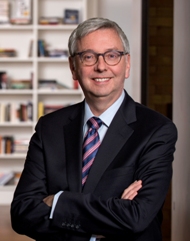This op-ed was published in The Hill Times on November 2, 2015
The new government will soon take office, carrying with it the hopes of a broad range of Canadians. And for those of us who value scientific research—either because we use it in our professional lives or simply because we value its role in a modern knowledge society—there are many reasons to be optimistic.
The role of science in democracy, good policy and government was an important underlying theme in the election, given the widely shared view that the critical function of science and research in Ottawa has been badly diminished over the last decade. We now have a real opportunity to address this concern. Prime minister-elect Justin Trudeau has made concrete promises about how government will both support science and allow science to support the work of government, and by and large those promises are excellent. But how does that vision become reality?
One of the most intriguing proposals from the new government is to create a chief science officer (CSO). At the moment, what we know about this position is that its broad objectives will be to ensure that government science is available to the public, that scientists are able to speak freely about their work and that science plays a proper role in informing public decisions. These objectives are important, but there are many details the new government will need to work out with Canada’s research community.
One of the first jobs of a new CSO should be to hold the government accountable to its current science commitments, including removing restrictions on the communication of federal scientists, reinstating a mandatory long-form census and ensuring Statistics Canada’s independence. Beyond restoring what was, advice is needed on strategic reforms and improvements to the breadth and depth of StatsCan’s work as a whole. Statistics gathered in the education sector, for example, are woefully inadequate, which belies our commitment to building a knowledge society for the 21st century. Longer term, the CSO should also advise on how research undertaken inside and outside of government can best serve public decision-making.
The overall effectiveness of a new CSO will depend on important details such as mandate, independence, transparency and resources. The government should look at models ranging from Canada’s experience with the Parliamentary Budget Officer to science advisers internationally, including in the White House, the U.K. and Israel.
And let’s clarify from the get-go a more comprehensive approach to defining the “science” Canada needs to build its future. The CSO, and the new government more broadly, must consider not only natural sciences and engineering but also the social sciences and humanities. Canada faces critical issues that require insight from social science and humanities research.
For example, the commitment to address the pressing issue of missing and murdered aboriginal women will require research expertise in community health and safety, as well as an understanding of the demographics—and yes, sociology—of poverty, violence and police accountability. The promise to reconsider Canada’s first-past-the-post elections system will require expert advice from political scientists and political philosophers. And supporting the development of entrepreneurship and a skilled workforce requires insights from creative arts, design, language and culture, as well as science and technology.
The “change” sought by many Canadians in this election is multifaceted, but it includes a strong desire for a public policy process supported by evidence. For members of the research community, the prospect of a CSO in Ottawa represents a significant moment with great promise to bolster the ecosystem for science and innovation. It will be more promising yet if accompanied by strengthening the work of Statistics Canada and ensuring internationally competitive, predictable funding for research across all disciplines through the federal granting councils.
Supporters of research and evidence-based policy are keen to work together to build a full spectrum approach to supporting big-tent “science” to improve how government works and enhance the lives of all Canadians. It’s time.

